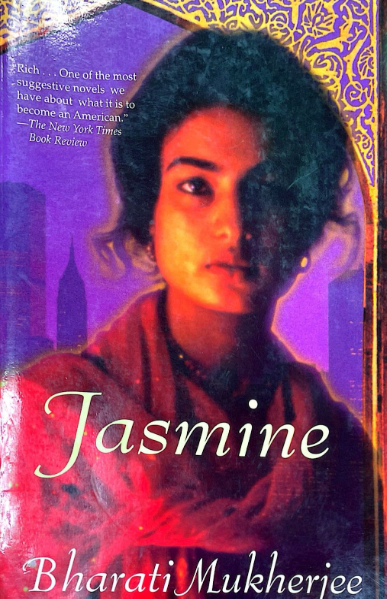What Bharati Mukherjee’s novel can tell us about real life
Note: This article is by Mafruha Shifat. Website issues are causing the wrong name to display.
When I first encountered Jasmine in one of my graduate classes, I did not anticipate the personal resonance it would hold for me as a South Asian woman navigating the American Midwest. Bharati Mukherjee’s novel is not just the tale of an immigrant; it is an exploration of how identity, femininity and resilience are constantly reshaped by culture, geography and circumstance. Jasmine’s journey in Mukherjee’s novel challenges conventional ideas about femininity and agency, offering a powerful narrative for anyone who has straddled different worlds, seen old identities slip away, and had to fight for a sense of self amidst a whirlwind of conflicting pressures.
From her early days as her previous name, “Jyoti,” in rural India to her myriad identities in America, Jasmine continuously redefines herself, defying traditional gender roles in ways that resonate across cultural boundaries. In her home village of “Hasnapur,” she is expected to follow a conventional path as a dutiful wife, embodying a quiet, obedient femininity. Yet, even from a young age, Jasmine’s spirit scratched against these constraints. When her husband Prakash renames her “Jasmine,” he is not just bestowing a Westernized identity but acknowledging her potential for transformation and independence. After Prakash’s untimely death, she does not simply grieve as a widow might be expected to; instead, she resolves to fulfill his dream of emigrating to America. This act, audacious for a young widow, challenges not only Indian expectations of demure femininity but also the idea that a woman’s identity should be defined by her husband or her marital status.
In America, Jasmine’s re-inventions are driven not just by her surroundings but also by the intersecting pressures of race, class, and culture that shape her agency in profound ways. She transforms into “Jazzy,” “Jase,” and later “Jane,” each persona enabling her to adapt, survive, and assert herself in a new context. These transformations illustrate how racial and cultural expectations in America play a substantial role in shaping her experience and her choices. As an immigrant, she faces the constant pressure of fitting in while dealing with underlying racial biases. As a working-class immigrant woman, she quickly realizes her vulnerability in the labor market, which dictates her choices in ways she could scarcely have imagined back in India. The relationships she forges are as much survival strategies as they are personal connections; her affair with Bud Ripplemeyer, a much older American man from Iowa, grants her not just a lover but a shield from economic and social precarity. In Mukherjee’s narrative, Jasmine’s agency is complex, often bittersweet, but always resilient. She refuses to let her identity be reduced to a single, simplistic narrative of victimhood.
Mukherjee’s novel highlights the constant possibility of reinvention for women, particularly immigrant women navigating spaces where gender and cultural expectations are in flux. Jasmine’s journey is not one of straightforward progress; it is cyclical and fragmented, reflecting the messy reality of identity in a globalized world. She embodies the fluidity of identity, showing that women, especially those who have crossed borders and cultures, do not have to be defined by a single role, nationality, or identity. Mukherjee’s narrative suggests that identity can be adaptable in a world shaped by globalization, a mix of old and new, chosen and inherited.
Reading Jasmine’s story as a South Asian woman in America, I reflected on my journey. Although I came to the Midwest with a student visa and privileges Jasmine might have never known, her story reflected many of the challenges, the urge to assimilate while preserving a sense of self, and the knowledge that my gender and background shape my experience in ways I cannot always control. Jasmine’s story is a narrative of survival and transformation, violence and resilience, tradition and modernity. Her journey reminds anyone who has felt like a stranger in a new land or has found themselves reinvented by the spaces they inhabit that identity is not static. Mukherjee’s novel dares us to imagine a world where identity is as fluid as it is complex, where women, particularly immigrant women, can forge their paths with courage, even in the face of seemingly insurmountable odds.
